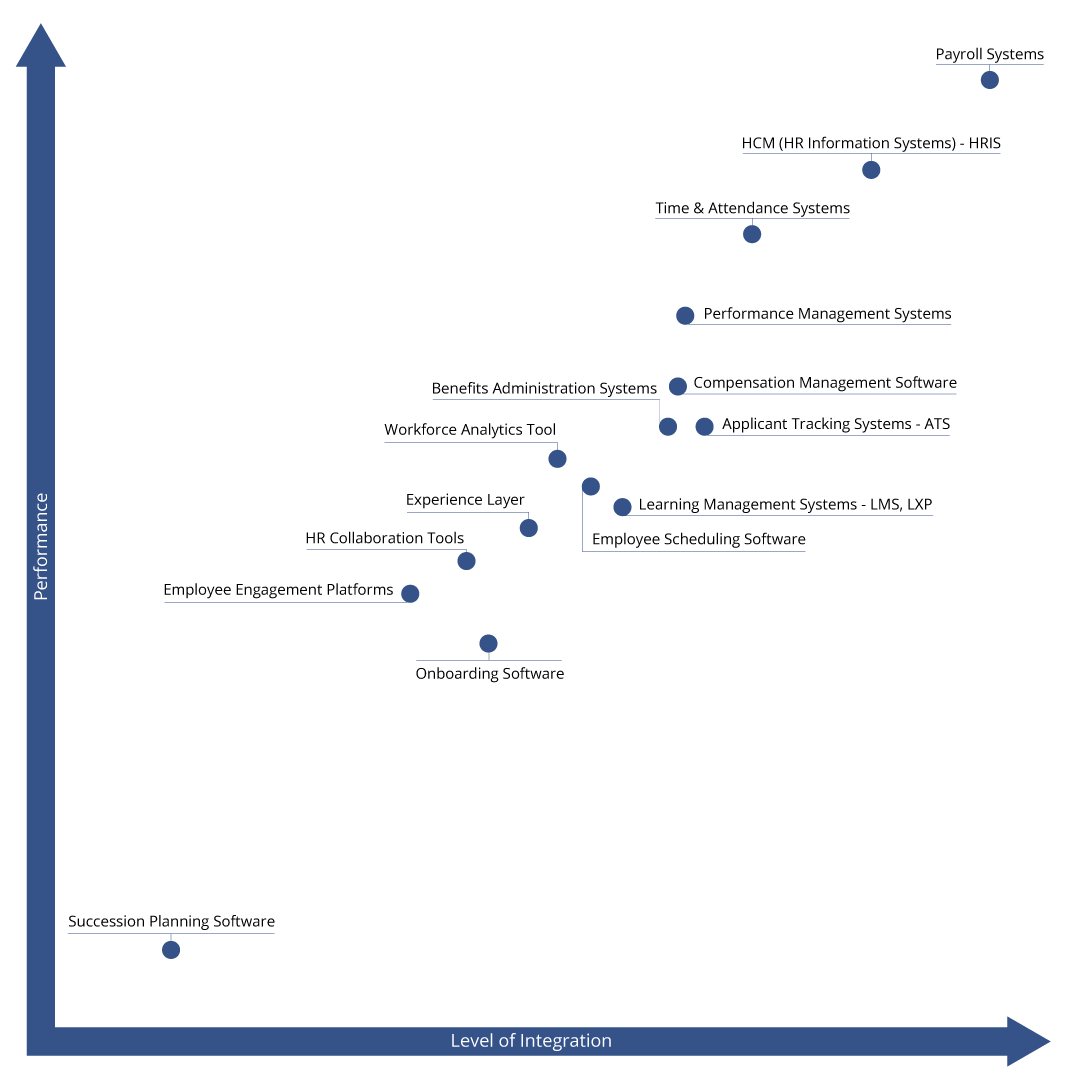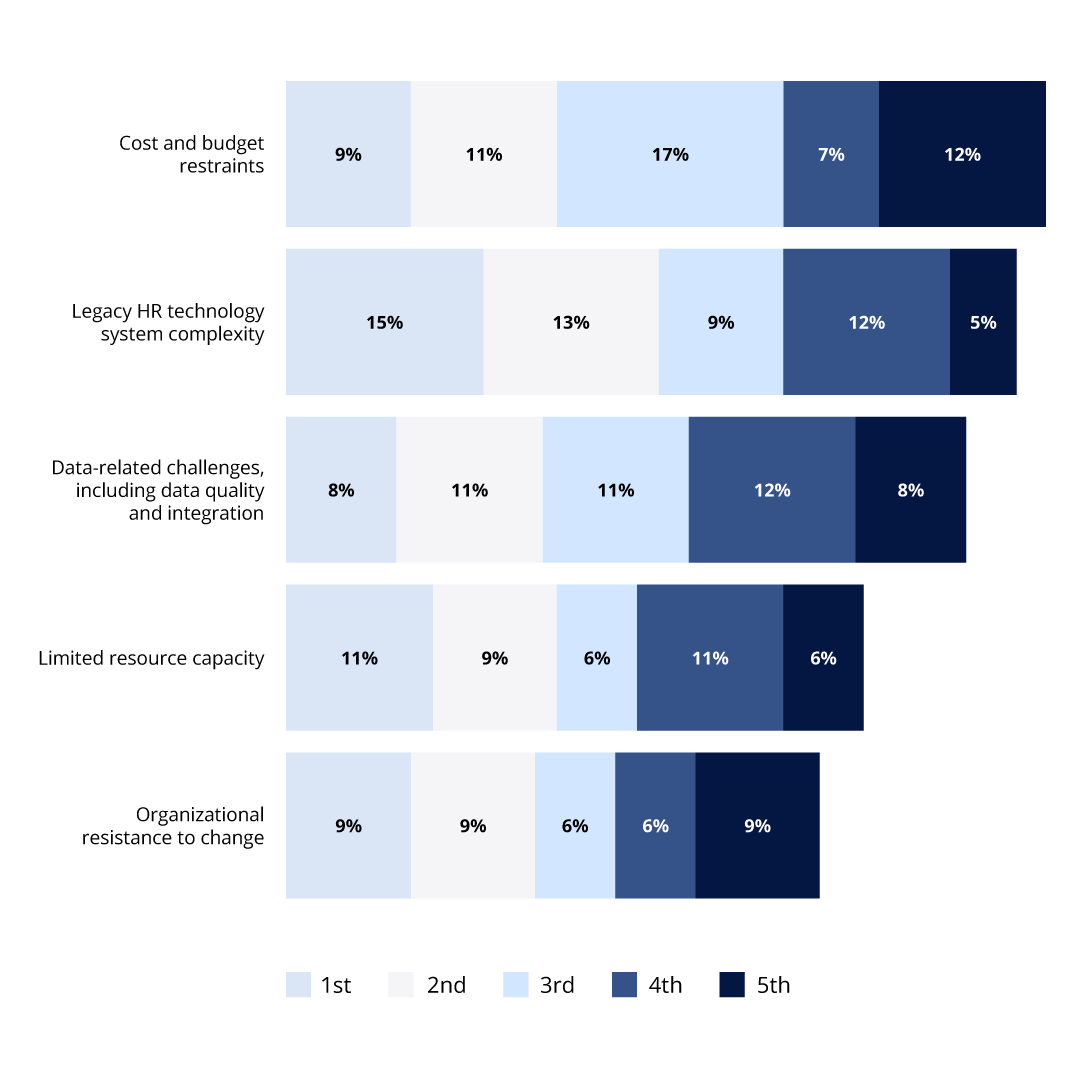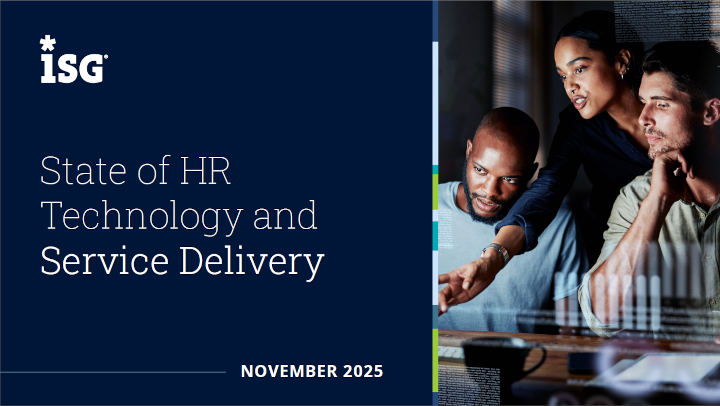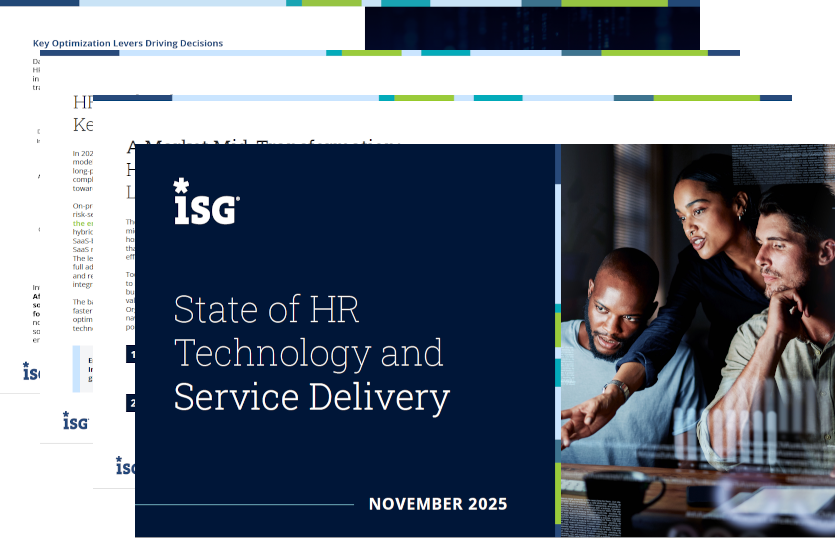
State of HR Technology and Service Delivery
From transformation to measurable business value.
ISG’s 2025 Survey reveals how leading enterprises are moving beyond HR transformation to deliver optimization, integration, and AI-enabled performance.
HR Technology & Service Delivery Highlights
The numbers behind the new HR technology era.
of global HR cores now run
on SaaS or hybrid-cloud
average HR-AI annual budget
(10× growth since 2023)
report measurable HR tech ROI
(up from 46%)
plan sourcing model changes
within two years

Use-Case Spotlight:
Integration Drives ROI
Integration is the new performance multiplier. Enterprises no longer win simply by adopting SaaS—they win by connecting it. ISG data show that fully integrated HR ecosystems deliver roughly twice the ROI of siloed peers. Integration across HR, finance, and workforce planning enables enterprise-wide analytics and real-time decision-making.
Adoption Pitfalls Reframed as Guidance
Continuous optimization requires strong foundations – budget discipline, data governance and people readiness are what turn technology into value. Our report identifies the top challenges and offers guidance to address each:
| Challenge | Guidance |
| Budget and resource constraints | Reframe as phased transformation with quick-win pilots tied to ROI. |
| Legacy system complexity | Prioritize data harmonization before AI deployment. |
| Weak governance | Embed HR–IT cross-functional councils and maintain 3-year roadmaps. |
| Poor change management | Invest in transparent communication, reskilling, and cultural readiness. |
Top Barriers to Achieving HCM Transformation

Let’s Dive In
What’s Inside the Report?
- Survey of 200+ global HR, IT, and business leaders
- Covers SaaS adoption, AI investments, HCM transformation and HR service delivery models
- Explores optimization levers: integration, analytics, governance, AI
- Includes industry comparisons, best practices & use case insights
- Length: 22 pages

Frequently Asked Questions: 2025 HR Technology & Service Delivery
What are the biggest HR technology trends in 2025?
Three standouts: (1) SaaS as the dominant core (69% today; momentum to 2027), (2) AI moving from pilots to governed portfolios and everyday workflows, and (3) a shift from “transformation” to optimization and measurable business outcomes.
How far along are enterprises with HCM transformation?
Over half are in-flight with transformation, about one-third report completion, and only ~8% have no plans. Leaders emphasize efficiency, cost reduction, and data quality/insights as top drivers.
Does moving to SaaS guarantee ROI?
No. SaaS is the foundation—not the finish line. Only ~52% report measurable business value; the differentiator is integration maturity—connected HR/finance/workforce platforms correlate with roughly 2× ROI vs. siloed peers.
Where will HR tech budgets focus through 2027?
Top investment areas: HCM platforms and workforce analytics, reflecting a push to strengthen core data fabric and insights. Payroll technology also ranks highly and often aligns with outsourced payroll changes. AI capability is expected within most new HR tech spend.
What barriers slow HR value realization?
Persistent hurdles include cost/budget constraints, resource capacity, legacy system complexity, and data quality/integration gaps. Weak operating-model ownership, limited process harmonization, and inactive roadmaps also predict stalled optimization.
How is AI being used—and how much are enterprises investing?
AI has shifted from pilots to portfolios, with average HR-AI budgets around US$1.6M for 2026 (≈10× growth vs. 2023). Production use cases doubled to 30%+, led by onboarding automation, HR data/document creation, and AI-assisted job postings; workforce planning and payroll/time are more complex.
Source: ISG 2025 Survey on Industry Trends in HR Technology and Service Delivery, November 2025.

